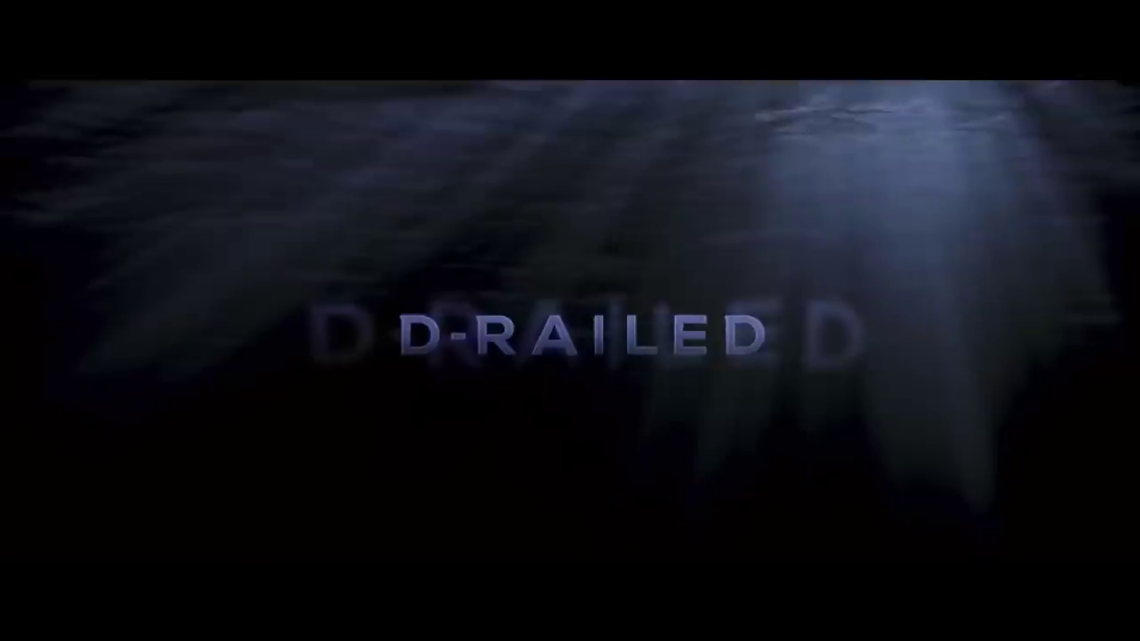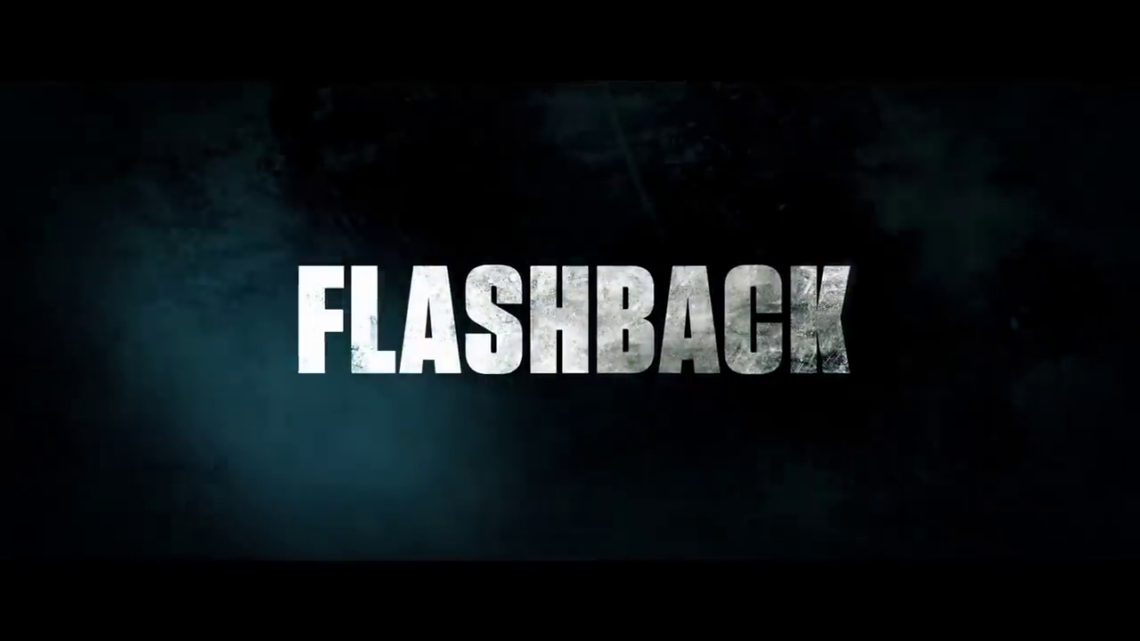-
#617 – Invisible Mom (1996)
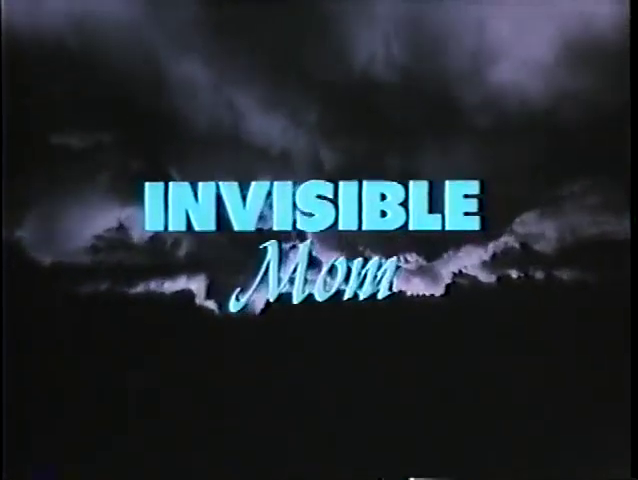
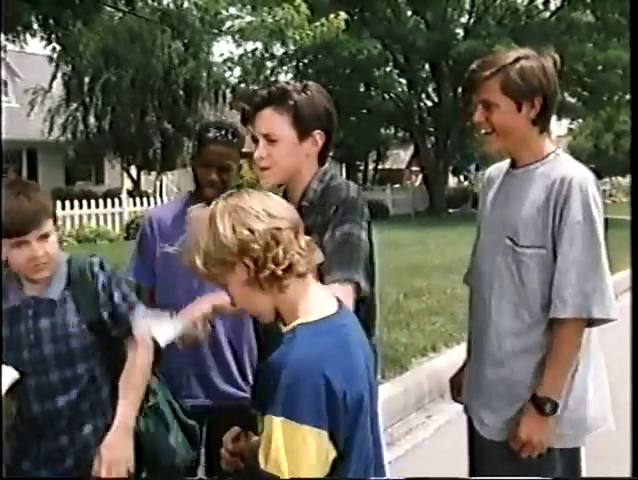
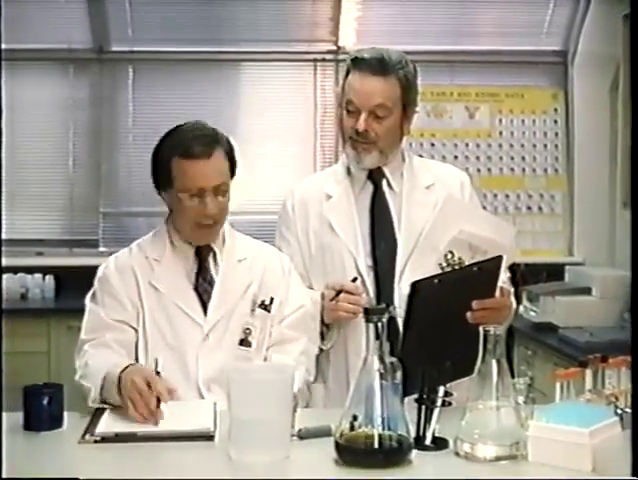
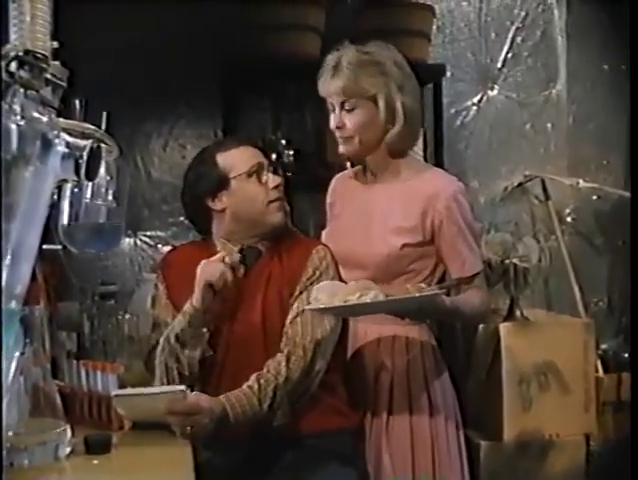

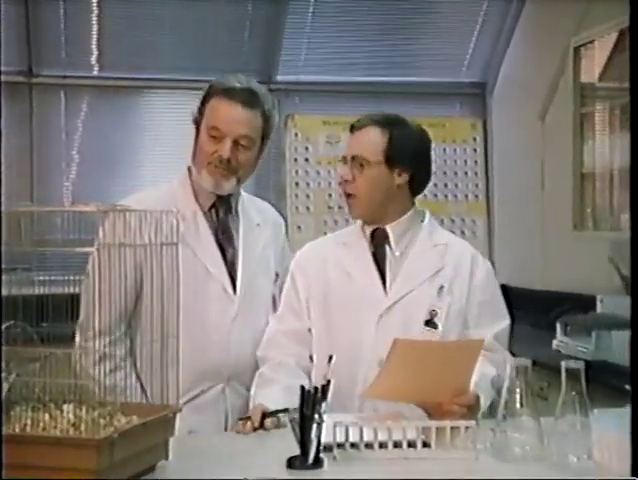
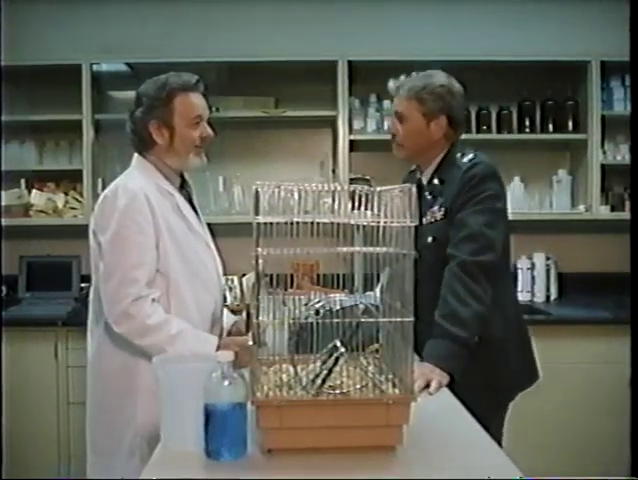


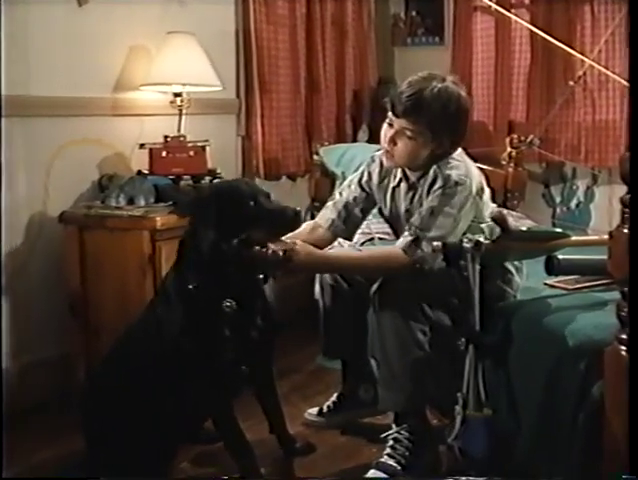
Invisible Mom (1996)
Film review #617
Director: Fred Olen Ray
SYNOPSIS: Scientist Karl Griffin invents a formula that turns people invisible when they drink it. When his wife drinks it by accident, she turns invisible, and without an antidote, can’t turn back. When Karl’s supervisor learns of the discovery, he tries to take the invention and credit for himself, and Karl must find a way to turn his wife visible again…
THOUGHTS/ANALYSIS: Invisible Mom is a 1996 sci-fi film. The plot revolves around Josh Griffin, a kid whose father, Karl is a scientist who is always inventing things. When he invents an invisibility potion that his wife accidentally drinks, she is stuck invisible because Karl is yet to find an antidote. Karl’s invention is stolen by his supervisor, who wants to take the credit for it, and Karl is arrested, meaning that it is up to Invisible Mom to try and save the day. There’s very little else going on in the film: it’s a family-friendly feature with low stakes and minimal danger. The consequences of Josh’s Mom turning invisible include the very usual consequences, including getting back at the bully kid who is picking on Josh, and it’s all very safe and predictable stuff.
In a surprise to no one, this is a very low budget film with not much going for it: having invisible characters probably helps with the cost too. The acting is…fine for what the film is, as no one has to do anything really difficult or extravagant. The characters are very cookie-cutter and are instantly forgettable, engaging in a very unoriginal plot that only very young children might be entertained by. There’s not much else to review in this film: Invisible Mom is a predictable children’s film that makes little to no effort to have fun with with the concept, whether this is due to a lack of imagination in the writing, or a lack of budget to actually do anything other than have people stand around talking. A film about invisibility you’re better off not seeing.
-
#616 – D-Railed (2019)
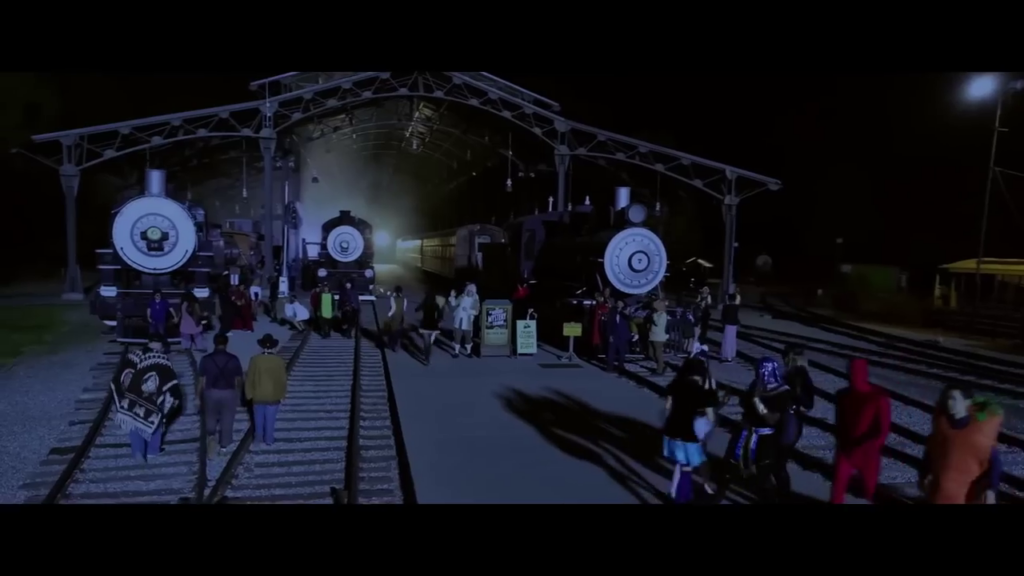
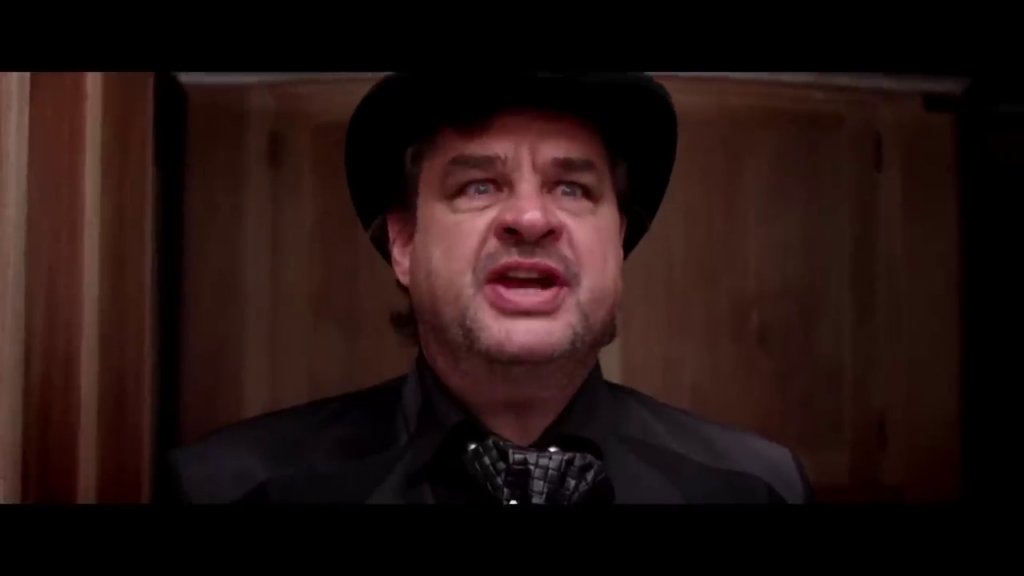
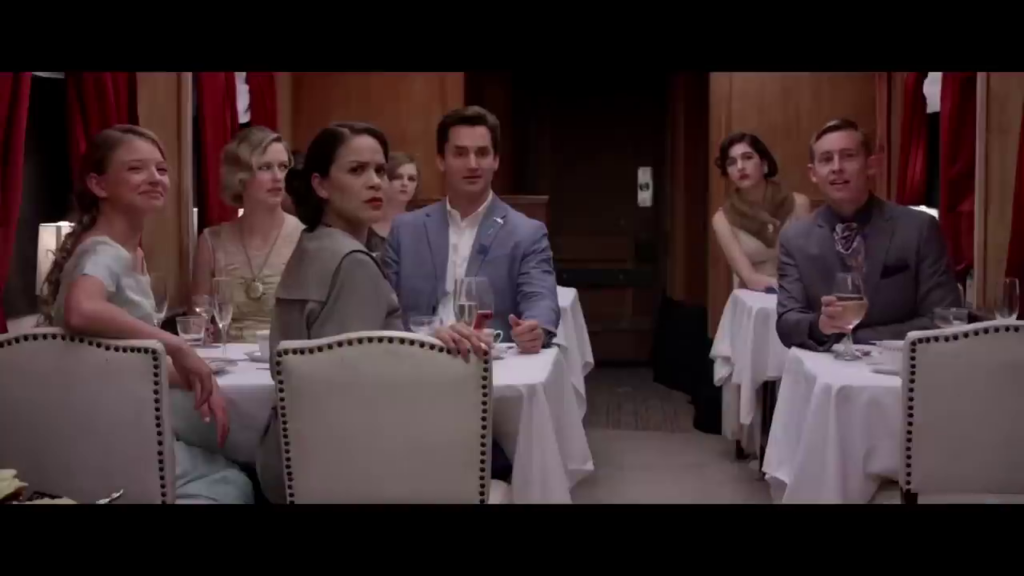


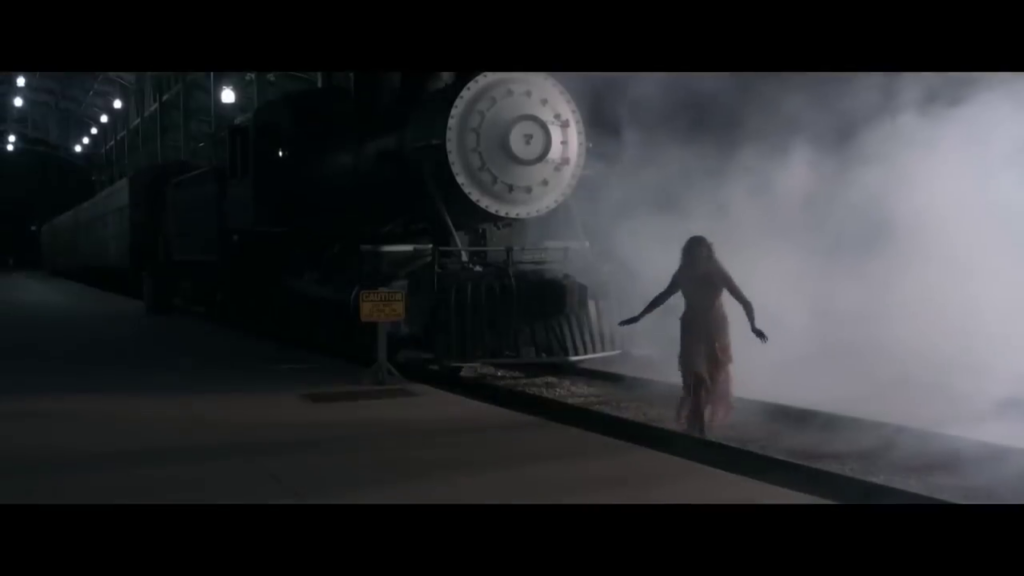
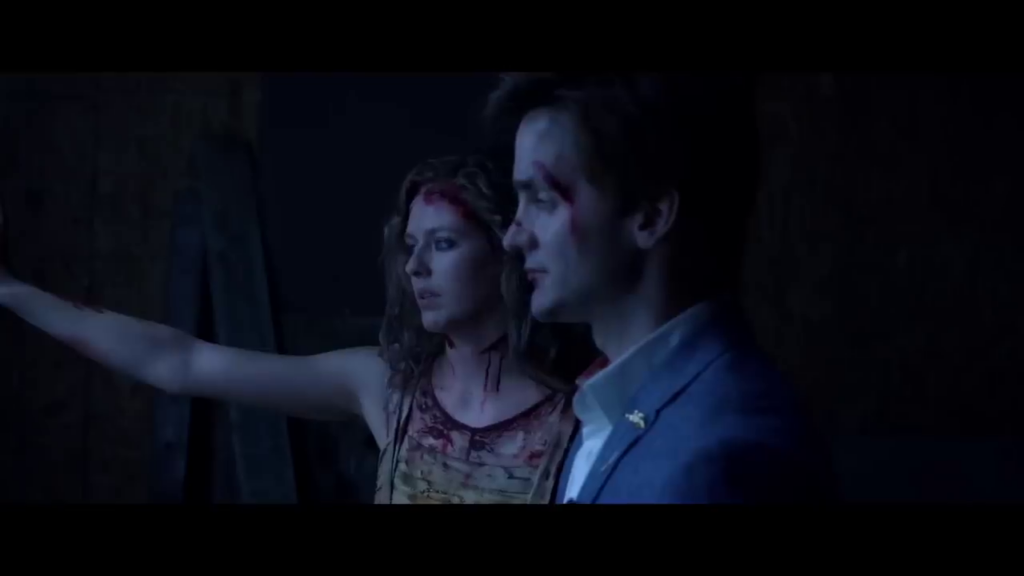
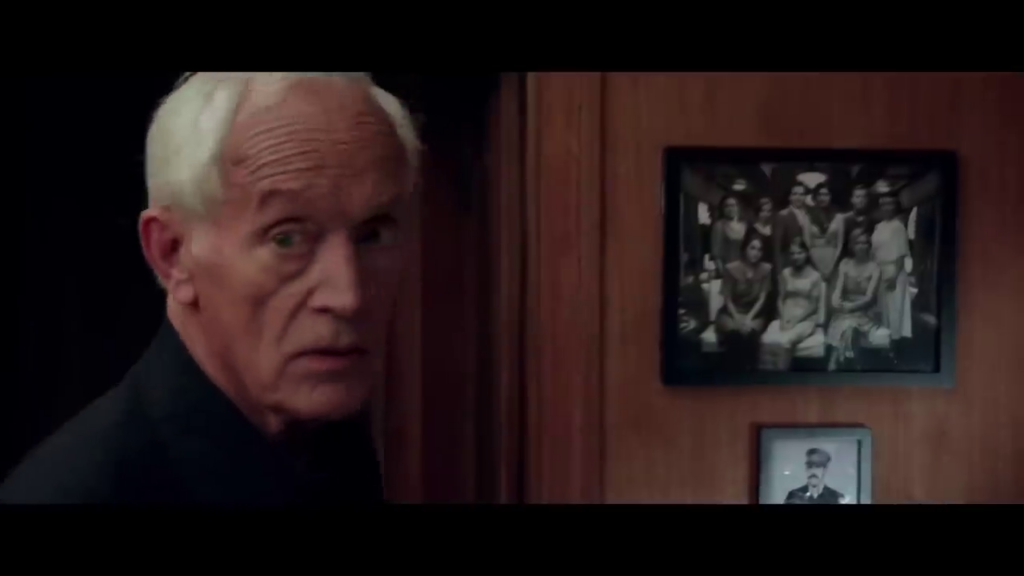
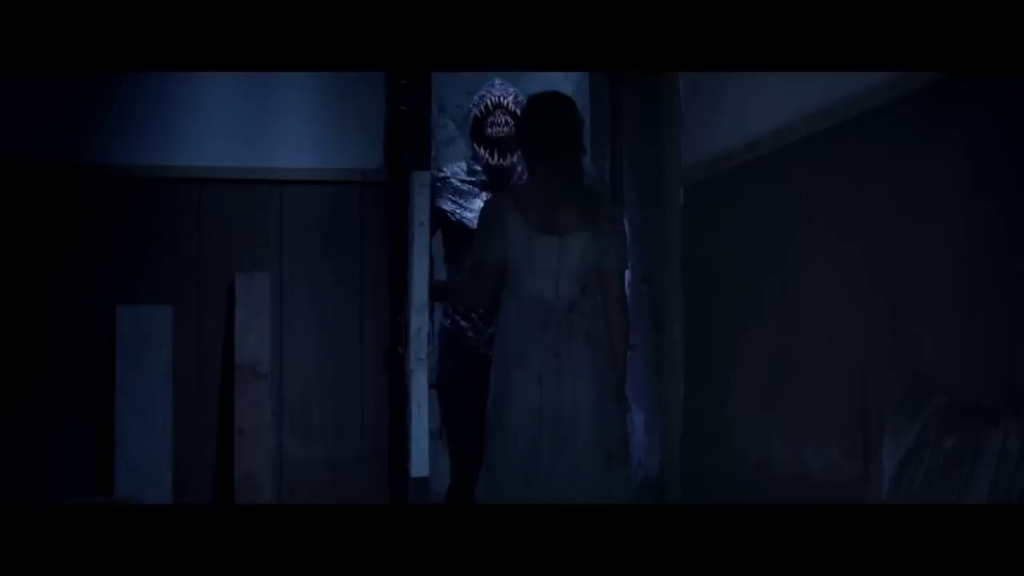
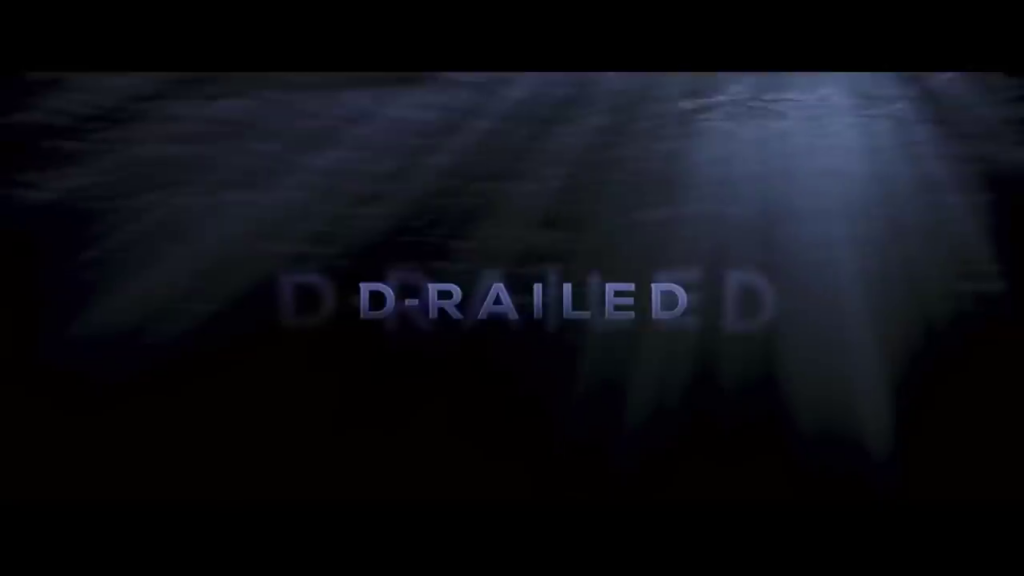
D-Railed (2019)
Film review #616
Director: Dale Fabrigar
SYNOPSIS: A murder mystery event takes place on board the train, and the guests find themselves caught up in a robbery, as what is real and what is performance starts to be called into question. The train derails into a lake, where a sinister monster is waiting in the waters ready to pick the survivors off…
THOUGHTS/ANALYSIS: D-Railed is a 2019 horror film. Starting off with a murder mystery event being held on a train, the participants get on board and are introduced to the event, and from there, things quickly spiral out of control, as a robbery takes place aboard the train, and the line between what is real and what is part of the event quickly blurs. Honestly, or a low budget affair, the opening act is pretty interesting: the question of what is part of the act and what is real becomes impossible to discern as the action moves pretty fast. Perhaps the characters could have questioned what was real and what was not a bit more, as they just suddenly swap from one to the other, but as viewers, it certainly has a least some intrigue that pulls you in.
Eventually, the train derails and lands in a lake, where a monster starts picking off the survivors. This is where the film itself starts to literally derail as well: the whole blurring of what’s real and what is dropped, and instead we just get a monster coming out of nowhere that starts picking people off quickly, with no real time to make the deaths meaningful. The monster itself is not established in any significant way: there’s no deep lore, mythos, origins, or reason for it to exist, so it doesn’t have much presence as a character. The film’s premise (based on the trailer anyway) is that the characters are trapped on a railway carriage in the middle of a lake as a monster lurks below the water. However, this forms the basis for about ten minutes of the film, as it feels like it quickly runs out of ideas of what to do on a railway. They also rather quickly establish that the shoreline isn’t too far away, so it makes it much less of an issue when they can just swim to the shore.
The survivors make their way to an abandoned house or something, where they’re all picked off by the monster until one remains, who manages to escape back to railway station where the train departed, asking one of the attendees for help. However, in the final twist, it turns out (spoiler) that the murder mystery event actually took place one hundred years ago, and there were no survivors, so the attendee saw a…ghost or something? Here’s the main problem with this film: absolutely nothing is explained or justified. We don’t know anything about the monster, the survivor, anything. In some films you can leave things up to interpretation, but this is not one of them. It explains that the murder mystery event actually took place one hundred years ago and…just stops, expecting us to be satisfied with that. There is no payoff to sitting through this jumbled mess of a film.
The sets are clearly all constructed from plywood, and the monster design isn’t really that convincing. CG effects too are lacklustre, and all this jus adds up to a jumbled mess of a film. I stand by that the premise of the opening act is at least intriguing, and handled well in terms of pace and editing, but the film quite literally derails when the train itself does, rushing too quickly ahead and burning itself out before trying to tie everything together at the end with a barebones explanation that goes nowhere far enough to justify the viewing. Train wreck.
-
#615 – Flashback (2020)
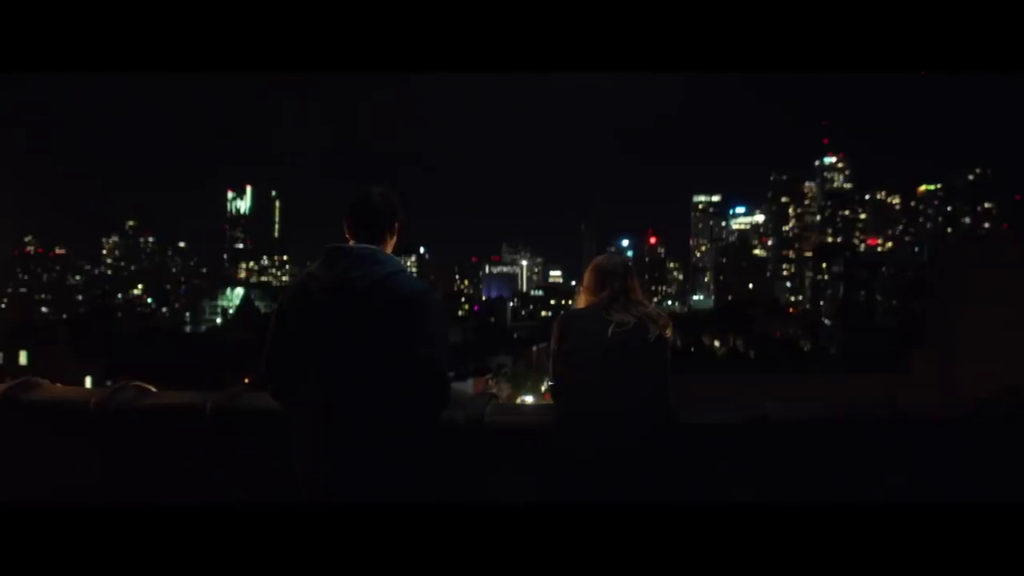
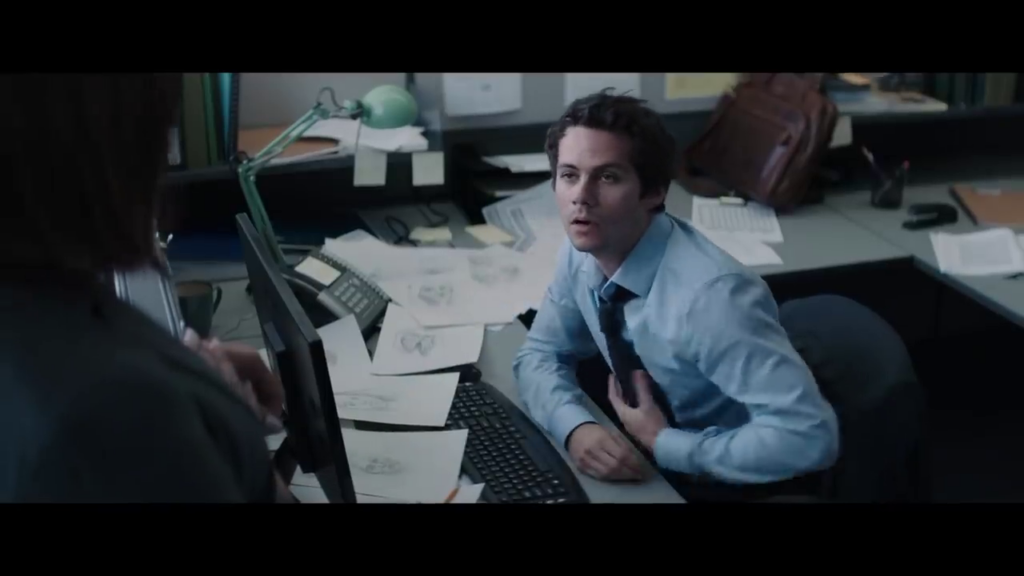
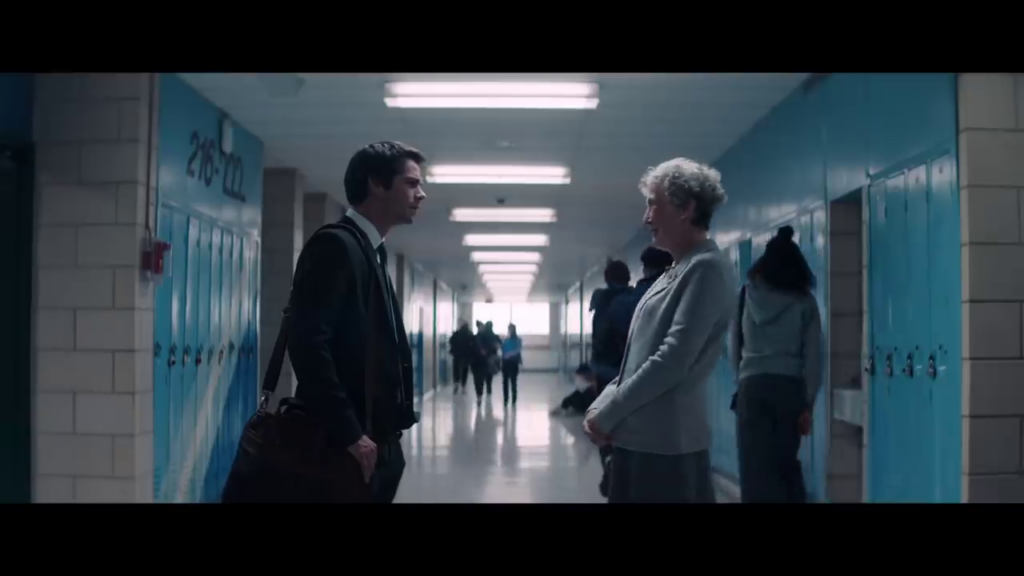
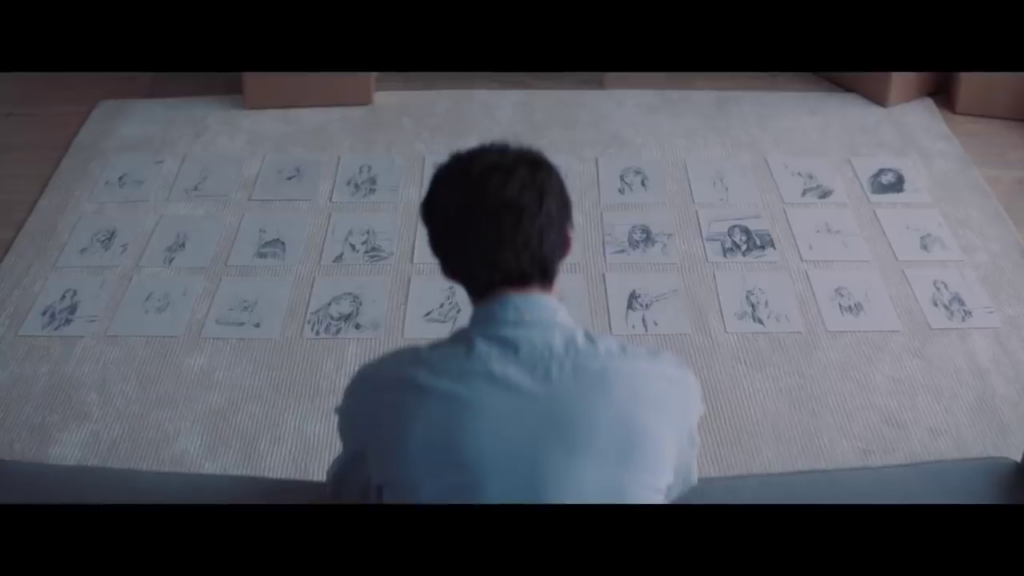
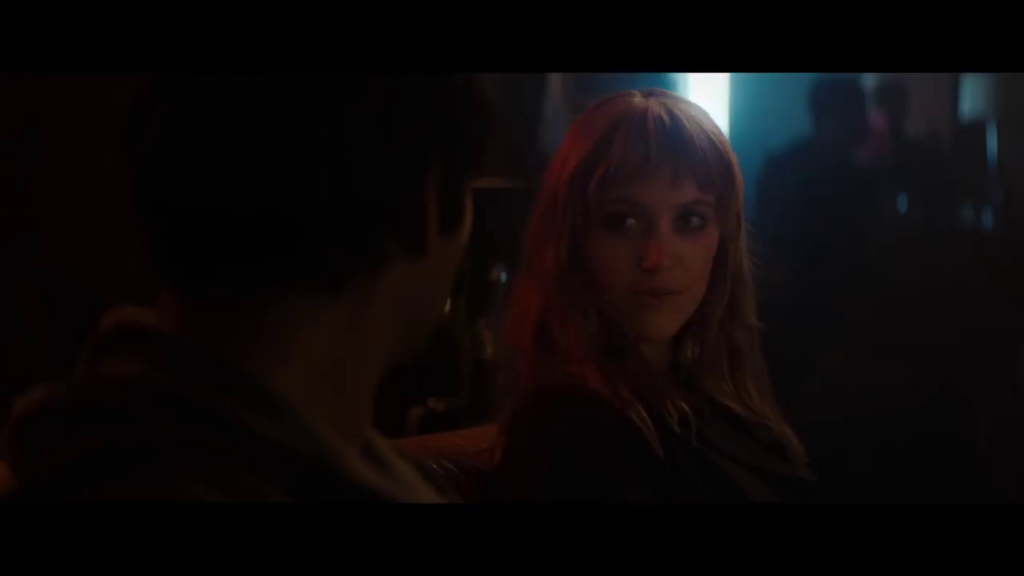
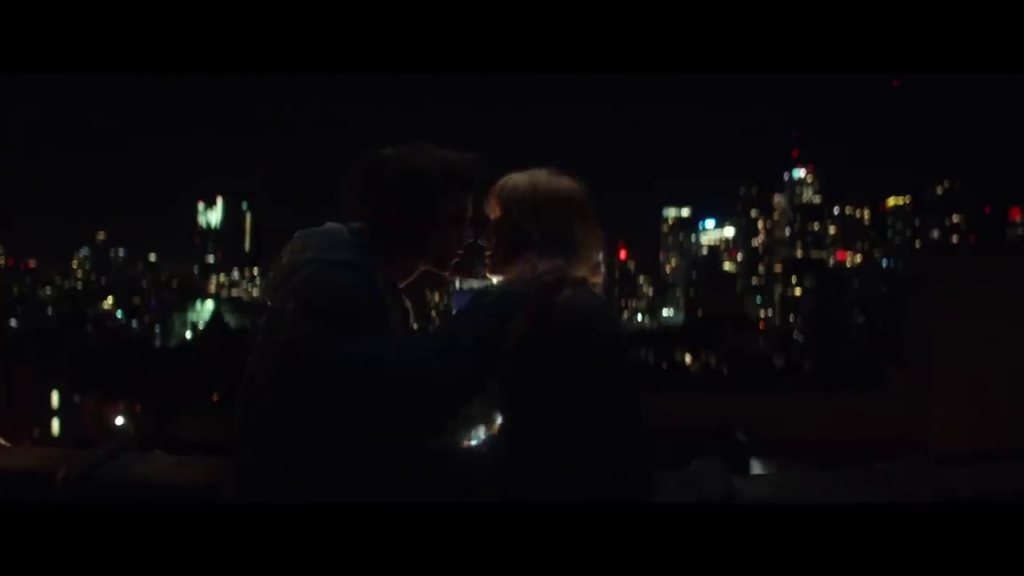
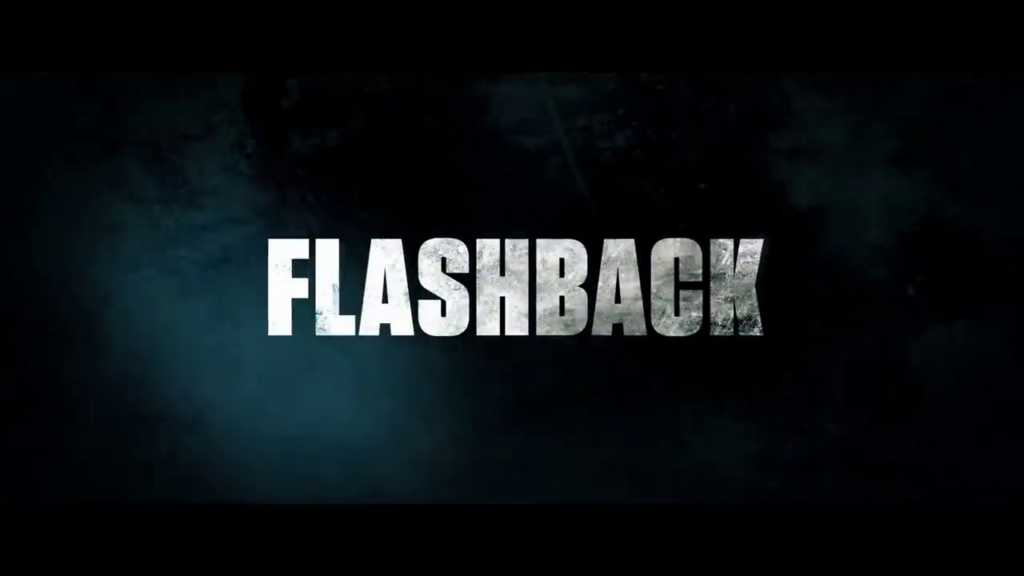
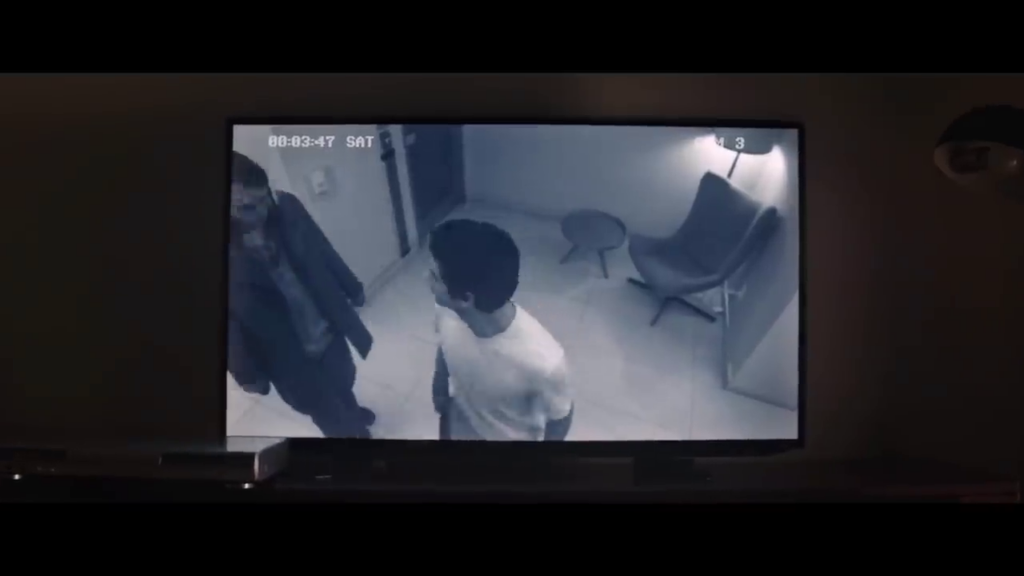
Flashback (2020)
Film review #615
Director: Christopher MacBride
SYNOPSIS: Fred visits his dying Mother in hospital, and begins to get flashbacks about a girl in high school who mysteriously went missing. As he becomes obsessed with trying to find her and get answers, his past, present and future all start to blend into one, as Fred has to make a choice about his life…
THOUGHTS/ANALYSIS: Flashback is a 2020 film. The film revolves around Fred, who lives a fairly normal life with his wife, and typical office job. After visiting his Mother in hospital, Fred starts to have flashbacks about a girl named Cindy, who went missing during his high school days. As his flashbacks become more vivid, and his obsession with finding out what happened to Cindy grows, his sense of reality begins to be called into question, as his past, present, future, and their inherent possibilities begin to overlap and be called into question. Flashback is clearly taking inspiration from films such as Donnie Darko, in which the troubled lead either slowly loses his grasp on reality, or is actually getting closer to the truth, depending on how you interpret it. A complex narrative weaves its way through the story that, honestly, I thought was a complete mess. The film goes overboard with its ideas and pushes the questioning of reality to the point where nothing really matters. Trying to hinge everything around the character of Cindy doesn’t really help things either. Whether Fred’s experiences were all just a bad drug trip, aliens that are forcing humans to experience time linearly when they shouldn’t, or just some sort of breakdown at dealing with the death of his Mother, I honestly felt the film didn’t offer enough for a viewer to draw their own conclusions. Maybe it’s a film that requires multiple viewings to really grasp, but it isn’t compelling enough to make me feel like I would ever want to watch it again.
Fred is a fairly normal, uninteresting character: he has a wife, job and all the normal stuff, and I suppose that’s why him being drawn into this bizarre situation is supposed to be more significant. However, I feel giving him a personality or something interesting about him, a personal connection etc. would have made what happens to him more interesting. Given that his past, present, and future are all blended into one, along with the various possibilities that they can take, you get the sense that nothing matters if everything is possible. You could probably make the film work around that, but again, it just doesn’t. It’s like if you took Everything, Everywhere, All at Once, and sucked all the fun out of it. The supporting characters are again fairly uninteresting, and only really exist as comparisons for how far Fred is or isn’t connected to reality.
There are moments where the film does get it right, the ending has an emotional impact, but these aren’t enough to bring the film together. The ending where Fred decides he “can’t follow” Cindy and falls back to his normal linear life is an odd one that doesn’t really feel justified, and makes the whole experience feels pointless. Maybe it’s a message of accepting what you have in the face of all the other possibilities, but this doesn’t feel earned. Overall, Flashback does it’s best as a mid-sized film, but a sense of overambition and inability to engage or entertain in the face of it’s overwhelming possibilities leaves it mostly dull and without consequence, and overshadowed by the films it is clearly inspired by (Donnie Darko, Matrix etc.). Maybe someone can appreciate it, and they apparently do, given that the film’s scores and reviews are not completely awful, but it’s definitely not for me.
-
#614 – Star Slammer (1986)

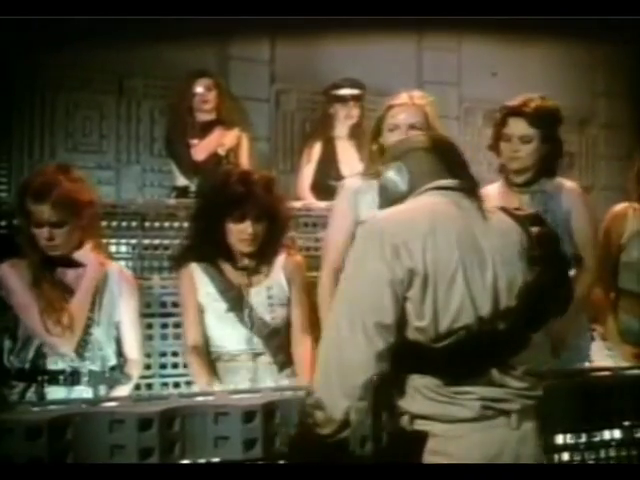
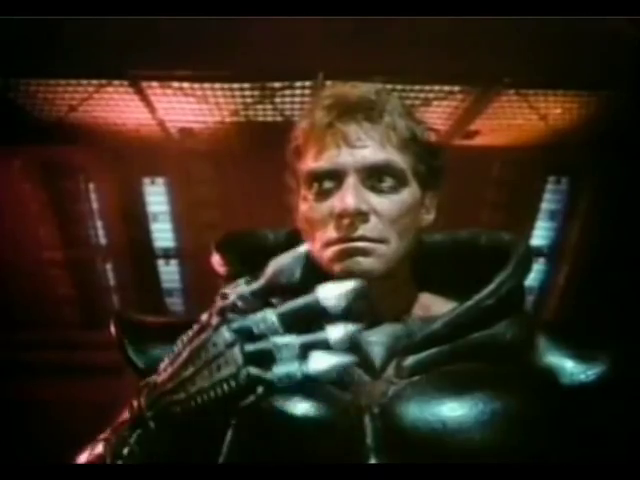
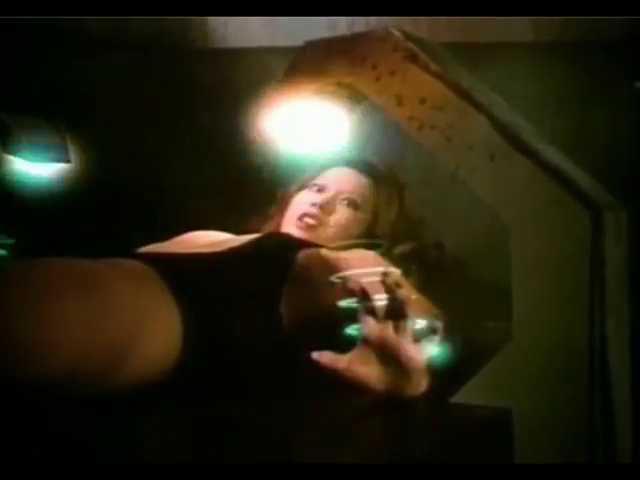
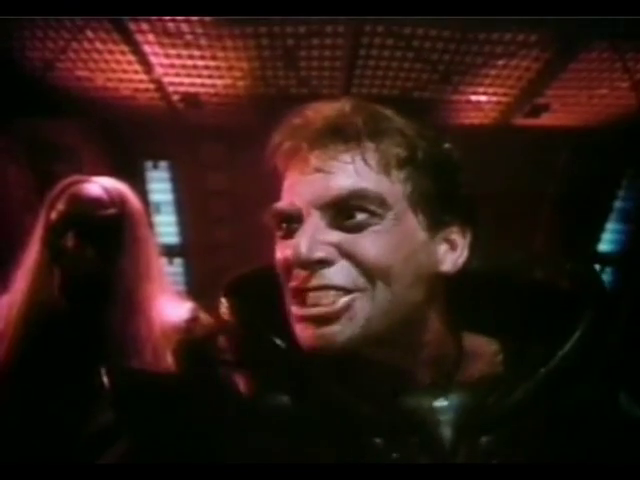

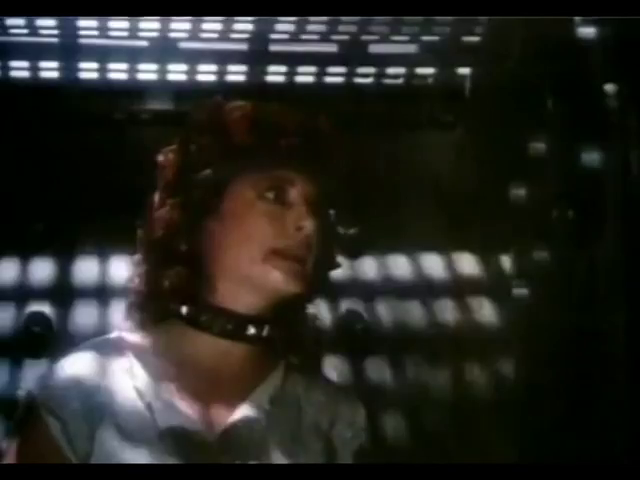
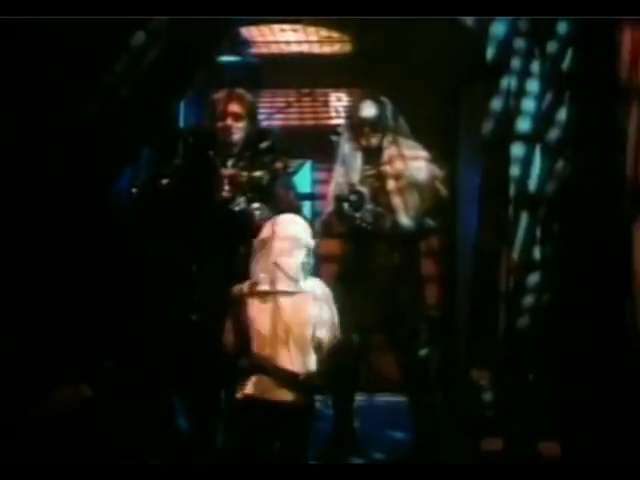
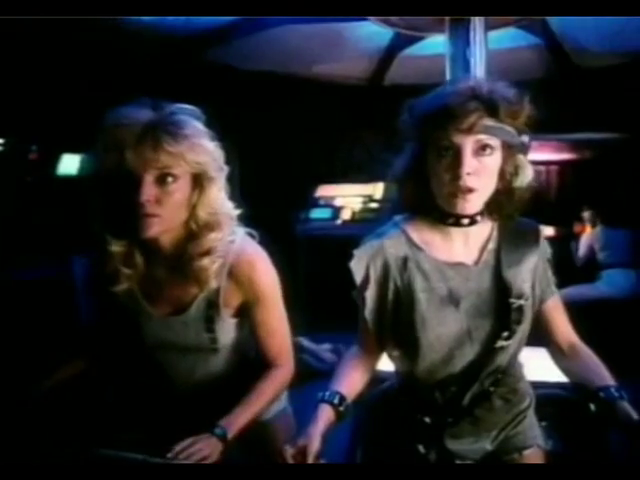
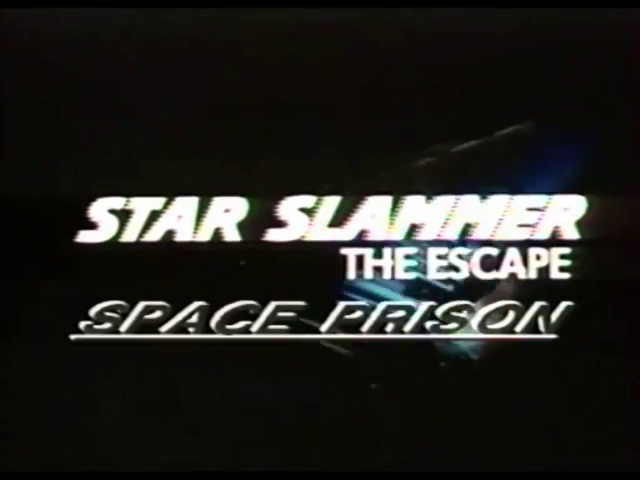
Star Slammer (1986)
Film review #614
Director: Fred Olen Ray
SYNOPSIS: Taura, a freelance miner working on the planet Arous, is arrested after helping the locals stand up against Captain Bantor and his crew, who are attempting to stop the uprising. Taura is arrested and sentenced to be imprisoned aboard a space prison ship. there, she must survive the warden and the inmates to try and escape…
THOUGHTS/ANALYSIS: Star Slammer (Also known as The Adventures of Taura, Prison Ship, Star Slammer: The Escape, or any combination thereof) is a 1986 sci-fi film. The plot centres around Taura, a freelance miner who gets caught up defending the inhabitants of the planet Arous from Captain Bantor and his minions, who are there to quell an uprising on the planet. After burning Bantor’s hand in a volcanic acid plume, she is arrested and sentenced to prison on board a space ship. Once there, Taura must survive the warden, as well as the other inmates, and find her way home. It should be no surprise to learn that this film is mostly just about showing off scantily-clad women fighting each other; but it is what it is, and it doesn’t really try to be anything else. The plot is threadbare and has little to latch on to, but at least tries to fill in the gap with the aforementioned half-clothed women. There is a clear lack of pretension in the film and its direction: it knows what it is , and it proceeds to run with it as far as its menial budget will allow.
The characters aren’t all too interesting: Taura is a fairly standard lead, and the rest of the inmates have a bit of personality, but nothing special. The most notable performance for me was the Warden, played by Marya Grant, who delivers such an exaggerated and over-the-top performance that you cannot help but take notice. The film also ropes in veteran movie star Aldo Ray for a a small part, which was apparently mostly used to show funders to back the project.
Filmed over the course of three days, the film is restricted to the opening being shot outdoors, presumable somewhere in the California hills, and the rest on the prison ship on set. However, the film can mostly get away with this, given that a prison ship is a fairly compact and small setting. Despite the production constraints, the film still manages to accomplish a lot more than other films would have with the same budget (and probably more): the sets themselves have a decent amount of detail and authenticity, and the practical effects aren’t terrible. It’s difficult to be too harsh on the film for this reason: it has a self-awareness, and it feels like some effort has gone into it, and at least some of the actors are trying. The story could definitely have used refining, as its mostly forgettable, but it never loses a self-awareness of its own limitations. One of the big drawbacks is that the film doesn’t seem to want to veer to much into the ‘women prison’ softcore scenario, so there’s only two topless shots and implied sexual scenes, which is fine, but without going too far in the genre, it has an empty space where the more lewd stuff should be. Overall, Star Slammer is trashy sci-fi that could definitely be a lot worse than it is, and has some funny moments, but some weaker elements definitely drag it down; ultimately though, you should never lose sight of the films self-awareness regarding its own limits and what it is trying to be.
